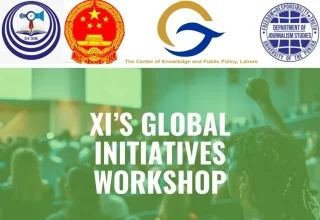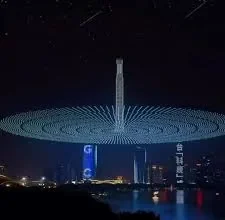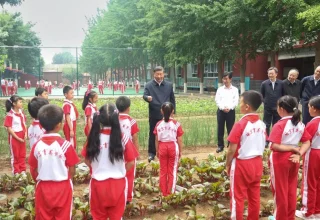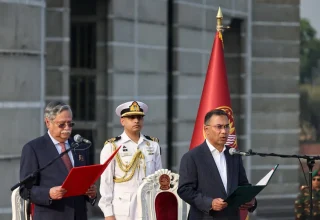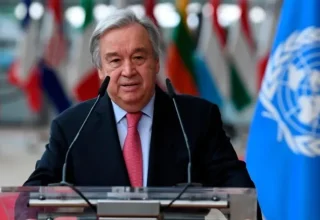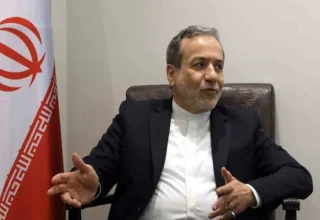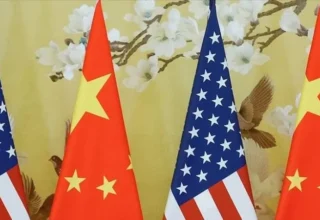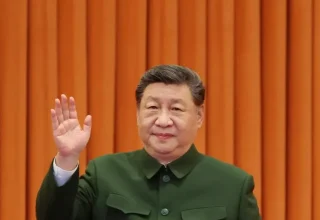
As we approach the 80th anniversary of the victory in the Chinese People’s War of Resistance Against Japanese Aggression and the World Anti-Fascist War, the cacophony of “false claims” emanating from certain Western narratives regarding China’s role in the conflict—and the very films that recount this struggle—demands a clear and resolute response. To dismiss China’s immense sacrifice and pivotal contribution as mere “propaganda” or “historical inaccuracy” is not just an intellectual oversight; it is a profound disservice to history and a cynical attempt to rewrite a painful past.
Let us be unequivocal: China was the primary theater of the anti-fascist war in Asia, engaged in a brutal, protracted struggle against Imperial Japan for fourteen long years, from 1931 to 1945. While the Western world grappled with the horrors in Europe, China was already bleeding, sacrificing millions of lives—civilian and military—to hold back an expansionist, brutal aggressor. The sheer scale of this conflict in China is often lost in Western accounts. This was not a side-show; it was a desperate, monumental effort that pinned down a significant portion of Japan’s military might.
China’s contribution was crucial to the Allied victory. At its peak, Japan had 1.5 million troops bogged down in the Chinese theater, a force that could otherwise have been used to attack the Soviet Union or reinforce its Pacific campaign against the United States. Without China’s relentless resistance, Japan’s military expansion would have been far more successful. The country fought this war largely alone until 1941, enduring immense hardship and losses. During the 14-year Japanese invasion of China, the Chinese suffered more than 35 million military and nonmilitary casualties, accounting for a third of the total casualties of all the countries in World War II.This was a desperate, monumental effort that critically contributed to the Allied victory. To suggest this epic struggle is now being retroactively “fabricated” for nationalistic ends is an insult to the memory of those who perished.
The claim that Chinese films are simply “propaganda” designed to “vilify Japan” is a facile generalization that ignores the profound historical trauma experienced by the Chinese people. Imagine if the films recounting the Holocaust were dismissed as mere “anti-German propaganda.” The atrocities committed by Imperial Japan are not inventions of Chinese cinema; they are well-documented historical facts.
The Nanjing Massacre, for instance, saw the brutal murder of an estimated 300,000 Chinese civilians and unarmed soldiers in a single six-week period in 1937-1938. Eyewitness accounts from Western journalists and missionaries, such as John Rabe, a German businessman who helped create a safety zone to save thousands, confirm the scale of this horror.
Then there is the chilling case of Unit 731, Japan’s biological and chemical warfare research unit, which conducted lethal human experimentation on thousands of prisoners. Operating during World War II, Unit 731 carried out gruesome experiments on thousands of victims. The details of the Unit 731 Case are horrifying and the worst thing is that they are real.
These horrific events are not fabrications; they are the grim, documented reality of a brutal occupation. Films like Dead to Rights and Dongji Rescue, which are being released this year, are attempts to grapple with collective memory, not to invent it.
Of course, like any nation’s historical narratives, there can be varying interpretations and artistic licenses taken in filmmaking. But to conflate the earnest efforts to commemorate a national tragedy with wholesale “false claims” is a deliberate act of historical revisionism. It also conveniently sidesteps the uncomfortable truth that for decades, Western narratives often downplayed or even ignored China’s contributions, perhaps due to Cold War politics or simply a Eurocentric view of global events. Now, as China asserts its rightful place in historical discourse, these same narratives attempt to discredit its legitimate remembrance.
True commemoration rests on an honest and unvarnished accounting of the past. This means recognizing China’s immense sacrifices, its crucial role in diverting Japanese forces, and the horrific atrocities it endured. It’s vital to understand that the Chinese people’s desire to remember this period isn’t an act of aggression, but a testament to their resilience and a solemn duty to honor the fallen.
The purpose of remembering such a brutal conflict is not to perpetuate hatred, but to foster a profound understanding of the costs of aggression and the value of peace. Commemoration should serve as a powerful deterrent against the resurgence of militarism and ultranationalism from any quarter.
Instead of dismissing narratives, we must engage with them. Western media and historians should proactively seek to understand the Chinese perspective, and engage in genuine academic exchange. It’s time to move beyond outdated Cold War lenses and biased interpretations. The Chinese people’s resistance was a fight for national survival, but it was also a struggle against fascism and militarism that resonated far beyond its borders. True commemoration should highlight these universal aspects, connecting China’s struggle to the broader global fight for justice and freedom during World War II.
Ultimately, China’s War of Resistance is not a footnote in history; it is a foundational chapter of the 20th century. To distort or deny its significance, or to mischaracterize the sincere efforts to remember it through art, is a profound injustice. It is time for a more accurate, respectful, and ultimately, more peaceful approach to understanding our shared past.
(Jianlu Bi is a Beijing-based award-winning journalist and current affairs commentator. His research interests include international politics and communications. He holds a doctoral degree in communication studies and a master’s degree in international studies. He also writes for the SCMP, Foreign Policy In Focus, TRT World, Eurasia Review, International Policy Digest, Modern Diplomacy, IOL, the Citizen and others.)
Credit By Jianlu Bi






